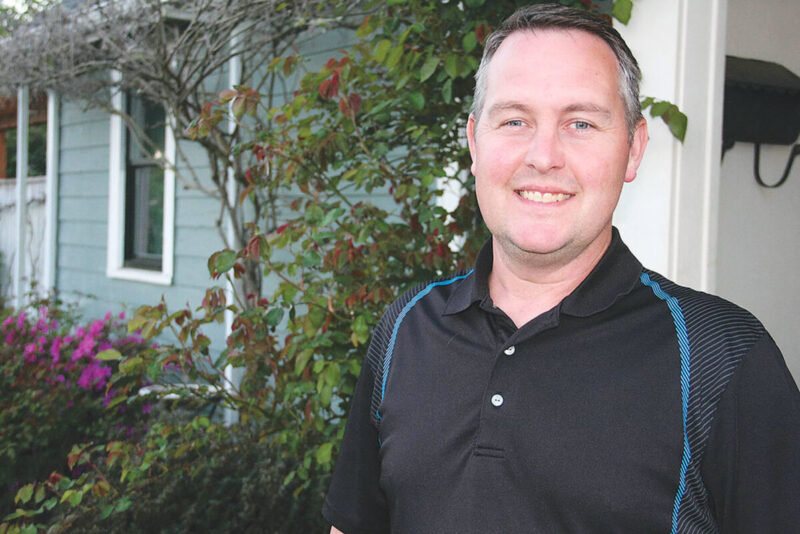Sean C. Morgan
The Sweet Home Planning Commission has appointed Jeff Parker chairman.
The chairman is selected annually by the commission.
Parker succeeds Lance Gatchell, who is serving as the commission’s vice chairman this year. Henry Wolthuis, who preceded Gatchell as chairman, also remains on the commission.
Planning Commissioners consider a variety of land use actions, such as conditional use permits, variances and subdivision plans, through a public hearings process. The commission’s decision often determines whether a development project may move forward. The commission also considers planning ordinance updates and advises the City Council on planning and growth issues.
The Planning Commission meets regularly, once a month. The commission has seven members, including up to two from outside the city limits. Members are appointed by a majority vote of the City Council.
The City Council appointed Parker, who has experience as a contractor, to the Planning Commission a year ago.
“I think it’s going well,” Parker said. “Everybody seems to be open to some change. We’re getting to do the code revisions.”
That’s the Planning Commission’s biggest task this year.
The commission is working with consultants John Morgan and Walt Wendolowski on a major update to the city’s planning ordinances. Parker said the commission will throw out some things that need to be thrown out and write some new codes, getting Sweet Home up to date but “keeping the Sweet Home feel.”
Planned recreation commercial (PRC) zoning is an example, Parker said. “A lot of that is probably going away.”
The city is in the process of getting rid of a chunk of such zoning in the Foster area, Parker said. Last week, the council held the first reading of an ordinance that will rezone property along the east bank of Wiley Creek, just north of Highway 20.
Most of the property north of Highway 20’s commercial zone between 18th Avenue and 47th Avenue, more than 700 acres, is zoned PRC as part of a master plan for a residential-commercial venture that has never materialized. The Willamette Industries Sweet Home Mill (later owned by Weyerhaeuser) property owned by Linn County and former Morse Bros. (later owned by Knife River) through tax foreclosure was a major component of the plan.
Under the PRC zone, every time anyone wants to do something, the prospective developer must go to the Planning Commission for review, which increases cost and time for developments, Parker said. The city is moving forward with the goal of getting more done at the planning counter in City Hall.
The PRC zone will remain on some properties, Parker said. “Honestly, Sweet Home needs tourism.”
Elsewhere, the ordinance needs updating. Among examples, Sweet Home has R-1 through R-4 zoning, Parker said. R-1 is low-density residential. R-2 is high-density residential. R-3 is medium-density residential. The new ordinance will put these types of zoning in the correct order.
“We’ve got a lot of recommendations coming in from the consultants,” Parker said. “They want small town code for small towns. We don’t want an abbreviated Portland code.”
Morgan and Wendolowski are completing a rewrite of codes for Millersburg. They’ll take that work and use it as a template for Sweet Home.
“It’s a complete overhaul,” Parker said. “We’re going to be scheduling extra work sessions.”
When the commission’s workload is light, when it has fewer public hearings and land use actions to consider, it will work on the ordinance updates, he said.
Based on the commission’s direction during the past year, “I think we’re doing good,” Parker said. “I think everybody on the commission is open to working with what we have and polishing what we have.”
Going forward, personally, Parker said he is interested in the City Council’s plan to develop a downtown streetscape plan this year.
“I’m kind of anxious to see what it is,” Parker said. “I’m interested to see if it includes some kind of lighting scheme.”
Personally, he said, he would like to see better lighting downtown.
He also would like to see planning and development move more quickly, with more decisions handled by staff, rather than the Planning Commission, less “talking about it” and more getting it done.





